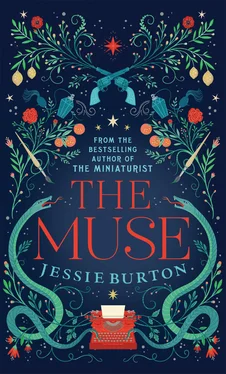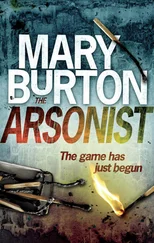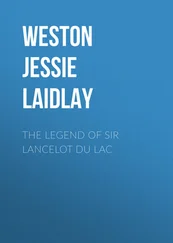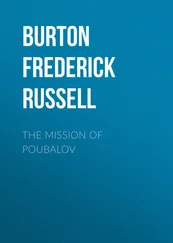‘So,’ Olive said, in Spanish again. ‘How long have you been married?’
Teresa stared at her. ‘Married?’
Olive frowned. ‘ Casados — that’s right, isn’t it?’
Teresa laughed. ‘Isaac is my brother,’ she said, now in English. She saw the blush spread over Olive’s face as she pulled a loose thread of wool from her jumper.
‘Oh,’ said Olive. ‘I thought—’
‘No. We have — we had — different mothers.’
‘Ah.’ Olive seemed to gather herself. ‘Your English is very good.’
Teresa removed the lemon gently from Olive’s grip, and Olive gazed in surprise at the fruit, as if she had no recollection of taking it up.
‘There was an American lady in Esquinas. I worked for her,’ Teresa said. She decided not to mention the German family she had also worked for, who, before returning to Berlin merely months before, had given her a rudimentary facility in German. Life had taught her that it was wiser not to play all your cards at once. ‘Her name was Miss Banetti. She did not speak my language.’
Olive seemed to awaken. ‘Is that why you’re here today — you want to work for us? What does your brother do?’
Teresa crossed the veranda and stared out at the skeleton trees in the orchard. ‘Our father is Don Alfonso. He works for the woman who owns the land and this house.’
‘Is it really owned by a duchess?’
‘Yes. Her family is very old.’
‘She can’t have been in this finca for a long time. The dust! Oh — but I’m not saying it’s your fault—’
‘ La duquesa is never here,’ said Teresa. ‘She lives in Barcelona and Paris and New York. There is nothing for her to do here.’
‘I’m sure that’s not true,’ Olive replied.
‘You are English or American?’
‘Half English. My father’s from Vienna. He married my mother, who’s English, but thinks she was born on Sunset Boulevard. We’ve lived in London for the last few years.’
‘Sunset Boulevard?’
‘Never mind. . so — you’re from Arazuelo?’
‘Will you stay long?’ Teresa asked.
‘That’s up to my father.’
‘How old are you?’
‘Nineteen,’ Olive replied, and when she caught Teresa’s frown she went on, ‘I know. It’s a long story. But my mother’s not well.’
‘She looks well.’
‘It’s deceptive.’
Teresa’s skin prickled at the hard edge that had crept into Olive’s tone. She wondered what was wrong with the beautiful, brittle woman in the oversized jacket. ‘You will need someone here, señorita,’ she said. ‘This is not London. You cook?’
‘No.’
‘Clean?’
‘No.’
‘You ride a horse?’
‘No!’
‘I will help.’
‘Well, how old are you ?’
‘Eighteen,’ Teresa lied, for in truth, she was sixteen years old. She had learned that foreigners often had a romantic, infantilizing attitude to age, keeping their children as children much longer. This girl was clearly a case in point. Teresa herself had never had such a luxury; sometimes she felt as old as stone. ‘My brother—’ she began, but stopped. She didn’t feel like talking about Isaac any more than was necessary. From her pocket, she brought out three envelopes. ‘ Tomate, perejíl, cebolla ,’ she said in Spanish.
‘Tomato, parsley, onion?’ Olive said.
Teresa nodded. She had not intended these seeds as a gift. She had in fact brought them to the finca in the hope that she could quietly sow them in the duchess’s more fertile soil, and ultimately harvest them for herself. ‘They are for you,’ she said to the other girl. Teresa had never, in sixteen years, given anyone a present.
Olive looked over her shoulder into the dark of the house. From deep within could be heard Sarah’s laughter, and the lower bass of the men. ‘Let’s plant them,’ she said.
‘Now?’
‘Now.’
From the outhouse at the end of the orchard, Olive found two rusting garden forks and handed one to Teresa. Teresa was struck by the other girl’s readiness to be here with her, turning over hard earth, weeding as she went. She didn’t want to be so happy about it, but she couldn’t help herself. Surely it was rare that a girl like Olive might choose to be here, rather than with those inside? When she protested that Olive should put on some boots over those socks, Olive looked down at her feet in surprise. ‘Oh, I don’t mind,’ she said, wiggling her darned toes. ‘I like the feeling of the ground.’
Teresa thought that only a rich guiri , with more pairs of socks than sense, would ever say such a thing. Miss Banetti, who’d also come for the rustic life, might have said it and appeared an imbecile. But there was something different about Olive, her thoughtless determination, her acceptance that was so whole-hearted, that Teresa not only forgave the girl her whim, but was delighted that she had no care for shoes.
Olive rolled up her sleeves and lugged two huge watering cans of spring water from the well at the end of the garden, and Teresa admired the sinews in her forearms, their pale endurance, the fact that nothing was lost along the way. Up and down the newly furrowed earth they walked with the cans, and as the water fell, Teresa spied a rainbow arching in the drops. If Olive felt the hard soil poking into her soles, she said nothing.
Harold invited Teresa to start by cleaning the ground-floor rooms, sweeping away the cobwebs that draped from corner to corner. Using rags ripped from a man’s shirt, dipping them in a bowl of vinegar and some of her lemon juice, she scrubbed the windows where dirt had layered round the frames. From the garden, she burned rosemary and sage on the flagstones. In a cupboard in the pantry Isaac found two electric heaters and set them up in the front east room, warming up the bare chalk walls as the sunlight moved over them. He promised them firewood.
Teresa made the Schlosses lunch from the chicken, refusing to eat it with them, although Isaac accepted the offer. By the time the chicken was out of the stove, it was clear to Olive that they had a new servant. But what of Isaac — under what pretence could they keep him near?
The clock in the hall dragged its pendulum four times. ‘God!’ Sarah said, as they sat at the dining-room table. Her mood was excitable, a great improvement on the day before, but not without its dangers. ‘Where’s the day gone? It’s so cold — I thought the south of Spain was supposed to be hot?’ She’d changed into a long-sleeved cream house jacket covering new red woollen trousers, and a blouse in matching scarlet polka dots. At some point she’d painted her toenails, and Olive saw ten small squares of vermilion on the terracotta floor.
‘It will get hotter,’ Harold said.
From the kitchen, Teresa clanged the tin plates on the draining board, a noise like an armoury.
‘Oh well then, I shall fetch my bathing suit,’ said Sarah. ‘Have you ever been to London, Mr Robles?’ she asked, turning to where he sat on her left, pouring coffee into his small white cup. ‘Do you smoke? Would you like an almond?’
‘Yes, I do. And no — thank you.’
‘Please, have one of mine. Harold snaffled some in Malaga. He’ll only smoke German ones, so that’s all we’ve got.’ Sarah fiddled with the box on the table and pulled out a cigarette; her wrists were burdened with bangles, and they clinked together. Isaac removed the cigarette from her proffered fingers and lit it himself.
‘I have not been to London,’ he said, weighing the city’s name with something like awe. London in calligraphic letters, Henry VIII, the Tower, Middle Temple. Olive’s London was not like that — it was a lonely walk through St James’s and along the Mall to the National Portrait Gallery to see her favourite Holbein; a penny bun at Lyon’s on Craven Street after, or a stroll through Embankment Gardens. That was what she missed — certainly not the other London, the stifling cocktail chit-chat, women’s over-rosied flesh, the lemon tang of Trumper’s wet shaves fresh on older men; red acne rashes of boys down from Oxford, with nothing much to say.
Читать дальше












